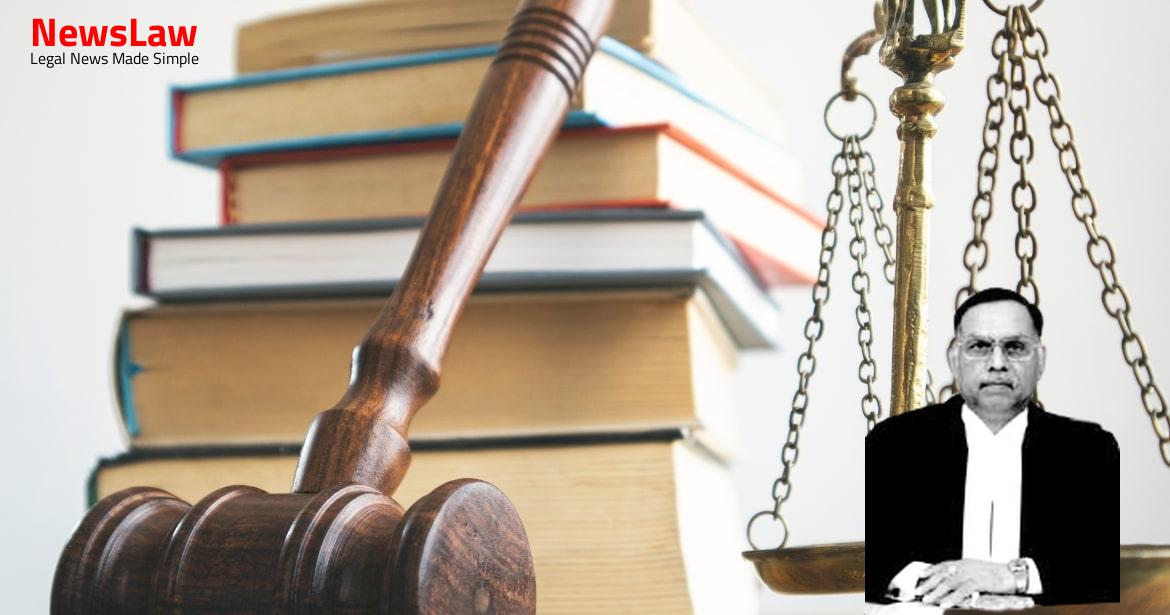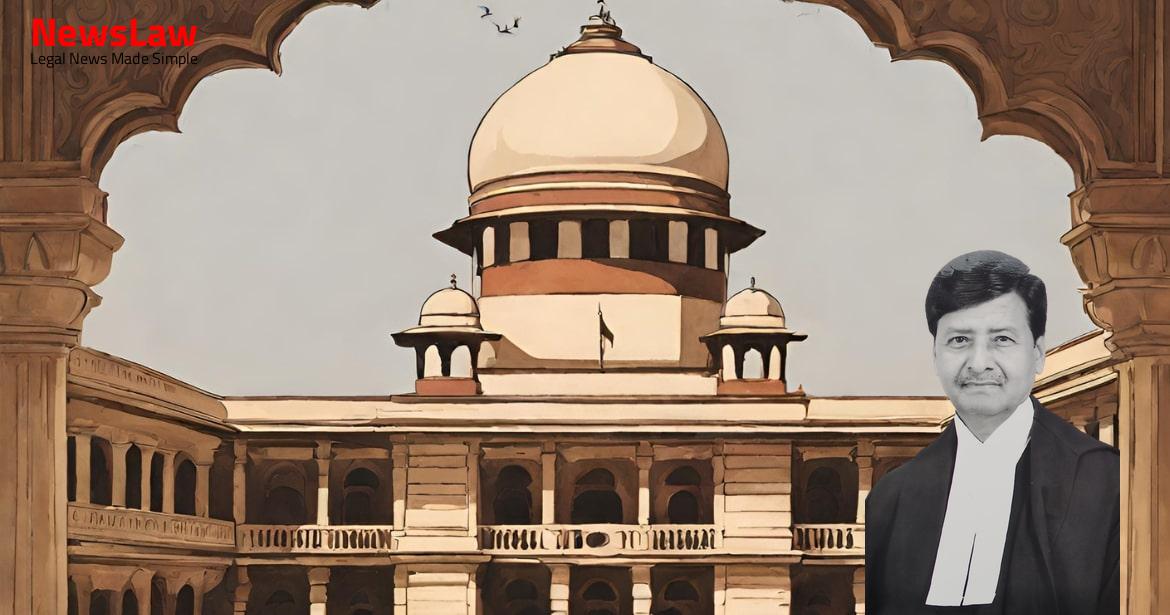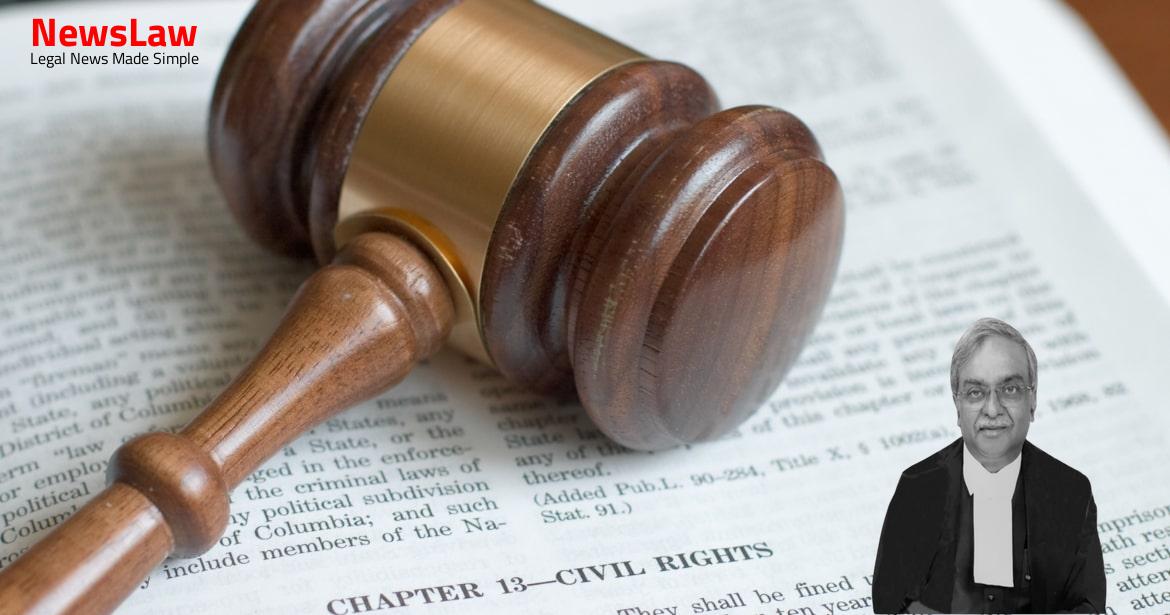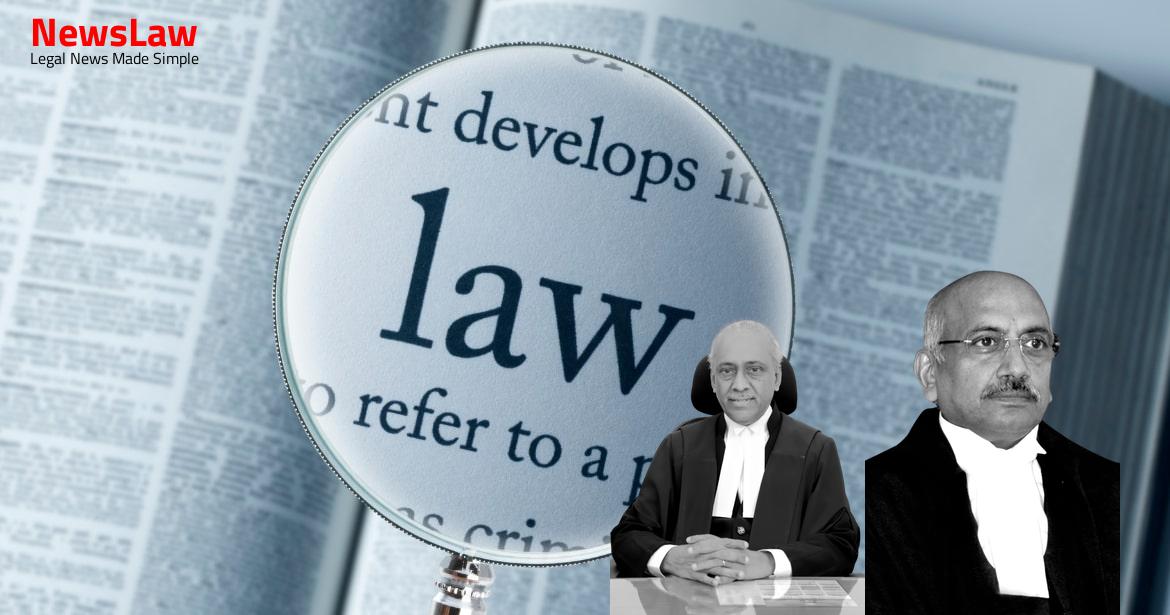Delve into the judicial scrutiny of government orders related to payment of wages during the lockdown period in this case summary. The court’s analysis focuses on the constitutional implications, the balance between employer and employee interests, and the withdrawal of specific orders under the Disaster Management Act, 2005. Stay informed about the legal intricacies surrounding wage disputes during challenging times.
Facts
- Various writ petitions have been filed challenging government orders related to payment of wages during the lockdown period.
- Petitioners have prayed to quash specific clauses of government orders as unconstitutional and in violation of the Constitution of India.
- They have requested permission to make partial payments to employees pending final disposal of the petitions.
- Petitioners also seek waiver of Provident Fund and ESIC contributions during this period.
- Intervention applications have been filed in the leading writ petition, challenging multiple government orders from different states.
- The petitioners argue that the orders are violative of Article 14 and Article 19(1)(g) of the Constitution of India.
- One of the prayers is to direct the government to subsidize wages using funds from ESIC or PM Cares Fund.
- The petitioners emphasize the significant impact of the lockdown on their businesses, even if they are part of essential supply chains.
- Overall, the petitions request judicial intervention to address the challenges faced by companies and workers during the lockdown period.
Also Read: Interpretation of Lease Agreement and Compulsory Registration
Issue
- Employer is financially unable to maintain employees
- Employees need support for basic needs
- Intervention required to help employees in need
Also Read: Enhancing Compensation and Modifying Sentences: A Legal Analysis
Arguments
- The petitioner argues that the lockdown orders were arbitrary and should be struck down.
- Notifications interfered with the rights of the petitioner Employers under Article 19(1)(g) and were contrary to Equal work Equal Pay and No work No pay principles.
- The Home Secretary cannot impose financial obligations on the private sector under the Disaster Management Act.
- The impugned notifications have exceeded their duration and any adjudication would be merely academic.
- Violation of Article 14, Article 19(1)(g), and Article 300A has been highlighted.
- The petitioner raises concerns about the financial hardship faced by members of the Employees Union and argues that the onus of compensation should ultimately be on the Government.
- The petitioner challenges the direction to pay wages during the lockdown citing legal untenability due to no work being rendered.
- A Public Interest Litigation has been filed to support employees and employers facing financial distress.
- The petitioner seeks directions for framing policies to mitigate problems in the private sector and address financial hardships.
- The National Executive Committee revoked earlier directions after 54 days.
- Arguments against the order dated 29.03.2020 being arbitrary or capricious have been presented.
- Submission that employers should not be compelled to pay wages during the lockdown, and alternate solutions like utilizing ESIC funds have been proposed.
- The Attorney General argues that the power to issue orders can be traced to Section 10(1) and the government has offered economic stimulus packages to help industries cope with financial burdens.
- Concerns about the inability of some employers to pay wages during the lockdown are raised, highlighting the need for adequate provisions from the authorities.
- The Disaster Management Act, 2005, is cited as the authority for the government’s actions.
- Impugned notifications are deemed arbitrary, unreasonable, and contrary to constitutional provisions.
- Arguments about the financial capacity of industries and the impracticality of a one-size-fits-all directive to pay wages are presented.
- The petitioner contends that the order dated 29.03.2020 was not a direct directive to employers but to the State/UT government and other bodies.
- Refutation of the petitioner’s proposal to use ESIC funds for wage payments is mentioned.
- The order in question reinforces the pre-existing right of workers to receive their wages without any deductions.
- This right is supported by the Payment of Wages Act of 1936.
Also Read: Transfer of Writ Petitions for Chartered Accountants’ Tax Audit Guidelines
Analysis
- The orders dated 29.03.2020 issued under Section 10(2)(l) of the Disaster Management Act, 2005, were withdrawn on 17.05.2020.
- The obligation for employers to pay wages to workers during the lockdown period is no longer in force.
- The Union of India can file a detailed counter-affidavit within four weeks.
- Both industries and laborers are dependent on each other for survival.
- A balance needs to be struck between the interests of MSMEs and employees.
- The lockdown measures affected both employers and employees adversely.
- Employers in various industries may not be able to bear the entire burden of paying wages during the lockdown period.
- Trade unions and employees’ associations represent workers in most industries.
- A balance needs to be struck between the competing claims of employers and employees.
- Orders passed under Section 10(2)(l) of the Disaster Management Act, 2005, have been withdrawn.
- Workers were willing to work but could not due to the closure of industries.
- The petitioner seeks for an order or direction from the Hon’ble Court.
- The petitioner requests the Hon’ble Court to consider the facts and circumstances of the case.
- The petitioner seeks a just and proper decision to meet the ends of justice.
Decision
- Private establishments, industries, factories must allow willing workers to work without prejudice to their rights regarding unpaid wages of over 50 days.
- Employers should publicize and communicate steps taken to employees.
- Affidavit detailing any settlement between employers and employees must be filed by next hearing.
- Private establishments, industries willing to negotiate wage payments for lockdown period can initiate talks with employees or seek conciliation through labor authorities.
- Settlements reached can be implemented regardless of government order dated 29.03.2020.
- Efforts should be made to resolve wage payment disputes for over 50 days between workers and employers.
- Settlement should not affect pending adjudication rights of employers and employees.
- Central Government and States/UTs Ministry of Labour should circulate and publicize the order for all private establishments, employers, factories, and workers.
Case Title: FICUS PAX PRIVATE LIMITED Vs. UNION OF INDIA (2020 INSC 425)
Case Number: W.P.(C) No.-000899 / 2020



